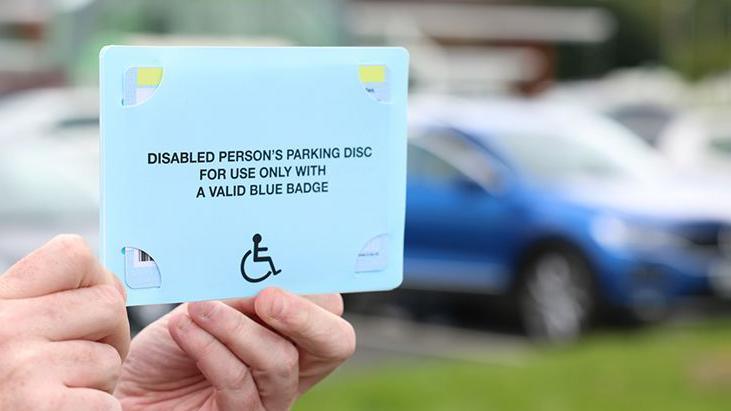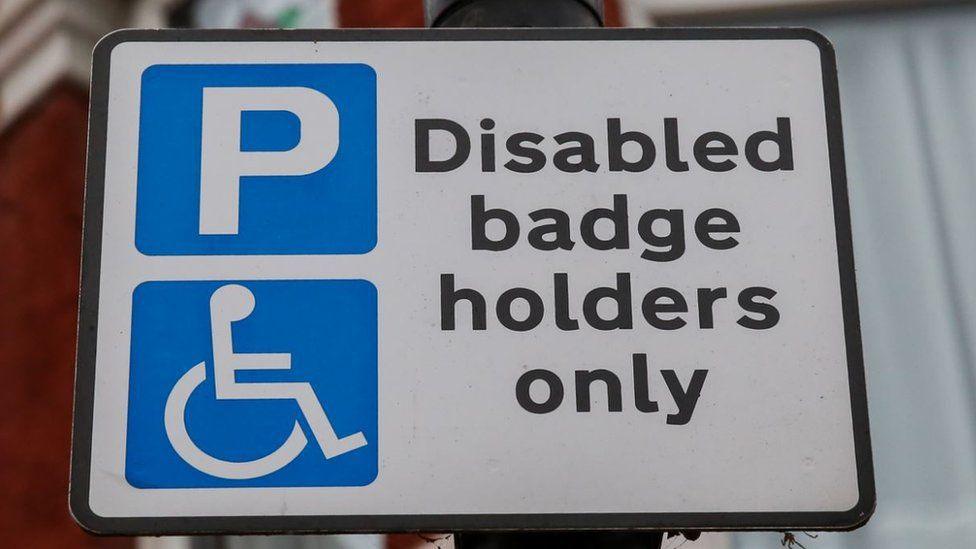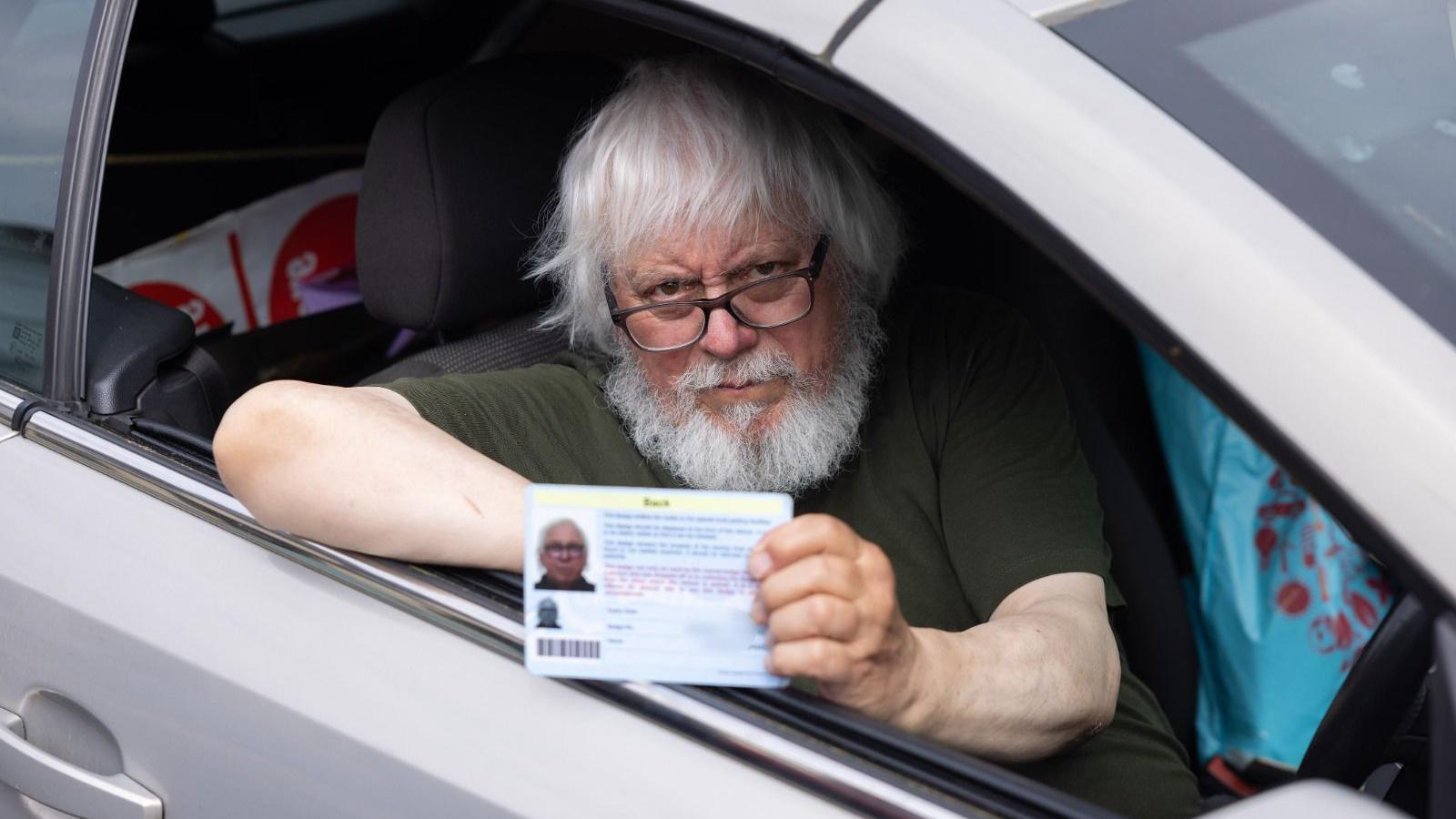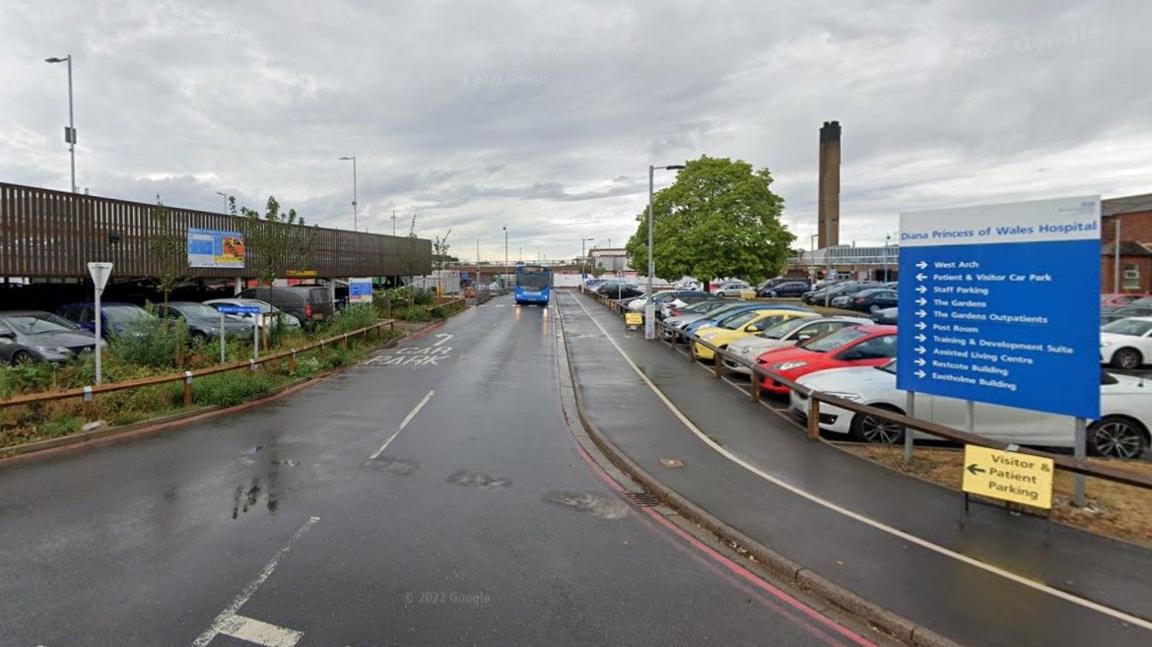Council pays driver £100 after refusing blue badge

The man appealed to the local government ombudsman after his application was turned down
- Published
A council has apologised and paid out a goodwill gesture of £100 following the refusal of a disabled man's parking badge.
North East Lincolnshire Council turned down the application following an assessment by a company working for the authority.
The man complained to the Local Government and Social Care Ombudsman, which ruled that the council failed to follow government guidance on assessing blue badge applicants who have hidden disabilities.
A council spokesperson said it had apologised to the man and the ombudsman had "closed the complaint as remedy satisfied".
According to the Local Democracy Reporting Service (LDRS), the man's parking permit expired in December 2023 and he was required to undergo an assessment.
The council chose to refuse the blue badge after a report compiled by an associate social work consultant at Navigo, a not-for-profit organisation that provides mental health services.
The report stated: “My opinion is he is not suffering from overwhelming psychological distress, he has attended appointments without his partner (well it is not documented his partner has been with him). I feel a blue badge for psychological distress is not met at this time.”
The complainant said the decision to refuse the renewal of a blue badge caused him avoidable distress, as being able to park in a disabled bay had helped his mental health condition.

The Local Government and Social Care Ombudsman ruled government guidelines were not followed
The ombudsman did not find fault with the decision to refer the man for assessment, rather than automatically renew the badge.
But the short assessment email did not evidence that the man had been able to explain how their disability affected their walking, or any anxiety, fear, avoidance strategies or coping strategies, and possible treatment received, the ombudsman found.
Under the government guidance, assessments should allow applicants to explain in their own words how their disability affects their walking, the LDRS said.
The ombudsman ruled the expert assessment used was “a cursory two-line email” that did not allow the man to explain the conditions that “may mean he suffers very considerable psychological distress when walking”.
In addition to the symbolic payment, the council was told to reconsider the man's application.
Listen to highlights from Lincolnshire on BBC Sounds, watch the latest episode of Look North or tell us about a story you think we should be covering here, external.
Related topics
- Published23 May 2024

- Published23 June 2023

- Published7 September 2024
